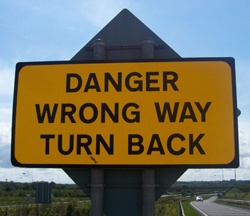Some would even say that the very concept of right and wrong is outdated and irrelevant - all moral judgments are merely social constructs, which vary according to time and culture and which we have no right to impose on others.
Even those who feel that morality should play a part in education, nevertheless tend to feel somehow uncomfortable if the subject is raised.
However, the truth is that schools are already totally involved in issues of morality. They can’t avoid it. Moral judgments pervade almost every aspect of school life - and it would be much better if everyone, teachers and pupils alike, were fully aware of this and understood why and how these judgments are made and on what they are based.
For instance, we make moral judgments when we say that children shouldn’t cheat in examinations, shouldn’t bully, shouldn’t steal things from the school or from each other, and shouldn’t attack teachers. Or when we insist that they are tolerant of other cultures, other sexual preferences, other races.
That is why schools have rules. These embody moral judgments, or values, which we all subscribe to because we want to live in a humane, civilized society where good choices are encouraged and bad ones avoided. We want our children to understand this and to grow up making the right choices too.
Public attitudes
Is this happening? A recent survey by the University of Essex indicates that honesty is on the decline. (See www.essex.ac.uk/news/Britons becoming more dishonest?) More of us now condone lying on job applications, buying stolen goods or driving under the influence of alcohol than we did twelve years ago. And it may be getting worse. Only a third of under-25s said lying on job applications was always wrong, compared to three-quarters of the over-65s. A 2009 Brunel University survey reveals that over two-thirds have stolen from their workplace and over half thought it was not wrong for a care home nurse to persuade a patient to change a will in his or her favour.
Responsible citizenship?
We must all take responsibility for this. We have allowed moral relativism to remain unchallenged for far too long. No such thing as right or wrong indeed! Tell that to the sexually abused little girl, or the child who wants to kill himself after years of vicious bullying.
We shouldn’t be afraid to condemn the wrong attitudes and actions that lead to these and countless other tragedies. That doesn’t mean we give up on the perpetrators and label them as irretrievably “bad” or “evil” but we desperately need to make them aware of the choices they make and help them to make better ones.
Moral development – an integral part of today’s curriculum?
This is where schools should make a crucial contribution, stimulating young minds to become conscious of the moral choices that they make every day and to absorb the values which will help them make the right ones.


















